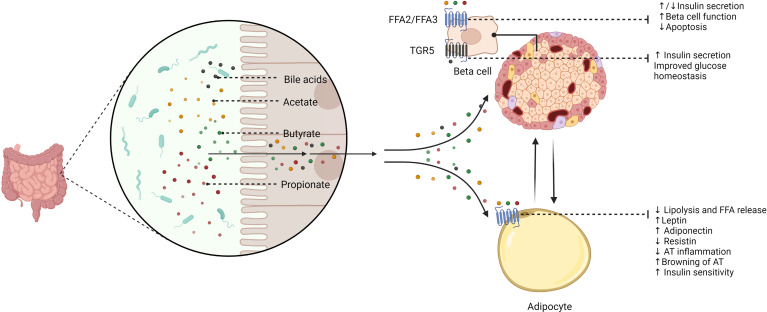Figure 2.
The potential role of gut microbiota-derived metabolites in beta cell and adipocyte function. The gut microbiome secretes several signaling molecules with direct effects on beta cell and adipocyte function. Short-chain fatty acids (SCFAs), including acetate, butyrate, and propionate, exert different effects on beta cells via binding short-chain fatty acid receptor-2 (FFA2) and FFA3. Thus, SCFAs inhibit apoptosis, improve beta cell function, and enhance insulin secretion. However, it has been reported that some SCFAs (i.e., acetate and propionate) could also inhibit insulin secretion. Bile acids may stimulate insulin secretion and improve glucose homeostasis through Takeda G-protein coupled receptor 5 (TGR5). SCFAs also have a role in adipocyte function via FFA2 and FFA3. Therefore, acetate, butyrate, and propionate regulate adipocyte metabolism and adipokine balance. These effects may result in reciprocal influences between beta cells and the adipocyte. FFA2/FFA3, short-chain fatty acid receptor 2/3; TGR5, Takeda G-protein coupled receptor 5; FFA, free fatty acids; AT, adipose tissue.

